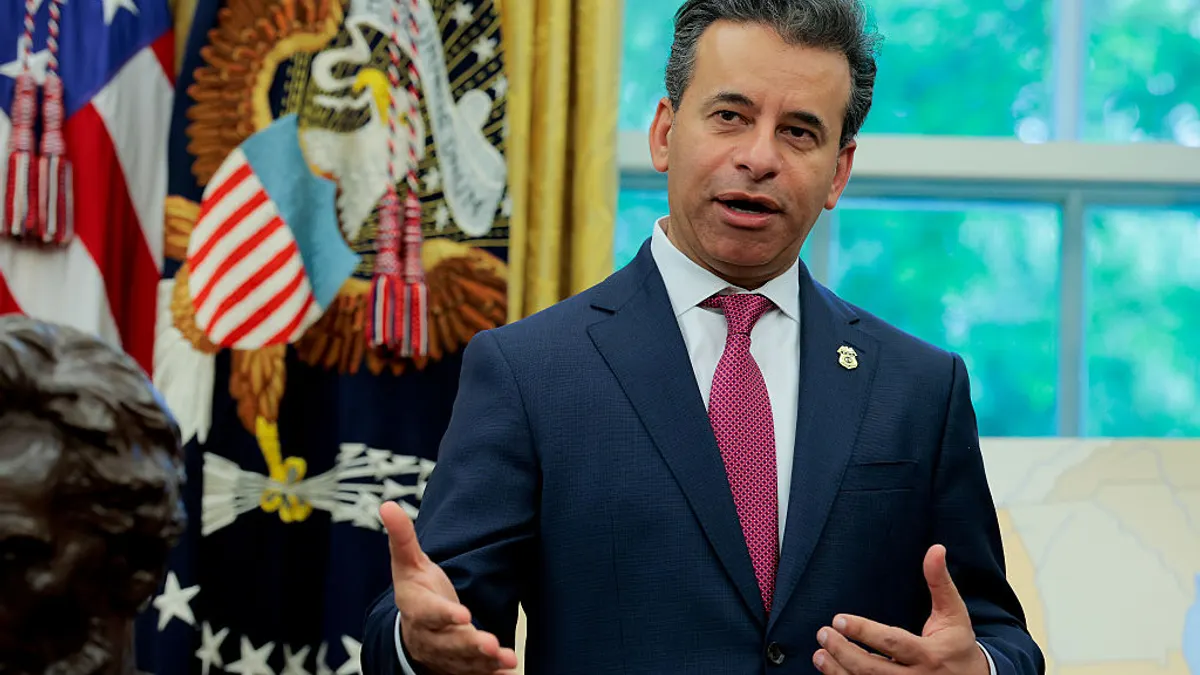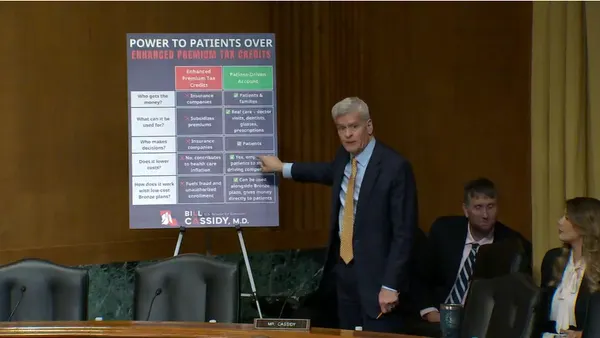Dive Brief:
- The Food and Drug Administration wants to speed the development of biosimilars, announcing new guidance on Wednesday that would no longer require the makers of copycat biologics to run human trials showing their products are as effective and safe as their branded counterparts.
- The FDA agency said the policy shift should make biosimilar development faster and cheaper, estimating that companies could now save $100 million in development costs per product. At a press conference, Commissioner Martin Makary said the move could help create “more competition [and] more choices” for people who need biologic medicines.
- Wednesday’s announcement builds on previous FDA initiatives to ease the development and review of biosimilars. In 2024, the agency proposed dropping studies analyzing the effects of “switching” between branded products and biosimilars. That move was designed to make it easier for biosimilars to gain “interchangeability” status, which allows pharmacists to substitute them for a biologic without a doctor’s prescription.
Dive Insight:
Biosimilars have yet to achieve their main purpose: to reduce the costs of complex biological drugs, as generics do for small molecules. Multiple barriers, from development costs to the contracting practices of branded drugmakers, have coalesced to keep prices high and limit uptake. The FDA estimated Wednesday that biosimilars’ market share remains lower than 20%, despite the fact that they’re equivalent to their more expensive counterparts.
Among those barriers are the need for clinical studies that test whether there is any meaningful difference between biosimilars and the original drug they’re meant to copy. These studies take one to three years to complete, and cost an average of $24 million, the agency said Wednesday. One Phase 3 trial of Amgen’s Amjevita, a biosimilar version of the anti-inflammatory medicine Humira, for example, involved 350 patients and tracked the drug’s effects over a year.
By comparison, the path to market for generic small molecule drugs is more efficient. They only need to demonstrate that they are chemically similar and “bioequivalent” to a branded medicine, enabling them to bypass animal and human efficacy studies.
More than a decade ago, when the first U.S. biosimilars were nearing approval, two economists estimated that developing new ones would take seven to eight years and cost $100 million to $250 million, far more than the $1 million to $4 million they projected for regular generics.
In its statement, the FDA said that the new policy would “simplify biosimilarity studies and reduce unnecessary clinical testing,” noting how many comparative analytical assessments are more sensitive to potential product differences than the efficacy studies previously required.
Under the new guidance, the agency said these studies could be dropped if a biosimilar is manufactured in a clonal cell line with genetically homogeneous components, if it’s highly purified and if it’s well-characterized analytically.
There are other requirements, too, such as a well-understood relationship between the branded drug’s qualities and its efficacy, and a human study analyzing how the body metabolizes the original version and its knock-off.
Advocacy groups representing biosimilar manufacturers and pharmacy benefit managers hailed the decision.
“Now more than ever, it is clear that biosimilars — safe, effective, and lower-cost medicines that reference biologics — are key to fixing America’s healthcare affordability,” said Juliana Reed, the executive director of the Biosimilars Forum, in a statement. “Today’s updated guidance from the FDA and Commissioner Makary on biosimilars is a momentous, critical step in unlocking the potential of these modern treatments to lower prescription drug prices for all Americans.”
“Today’s announcement to remove the unnecessary step of providing studies for biosimilar interchangeability is a watershed moment for making biosimilars more accessible for patients,” added the Pharmaceutical Care Management Association, in a separate statement.














